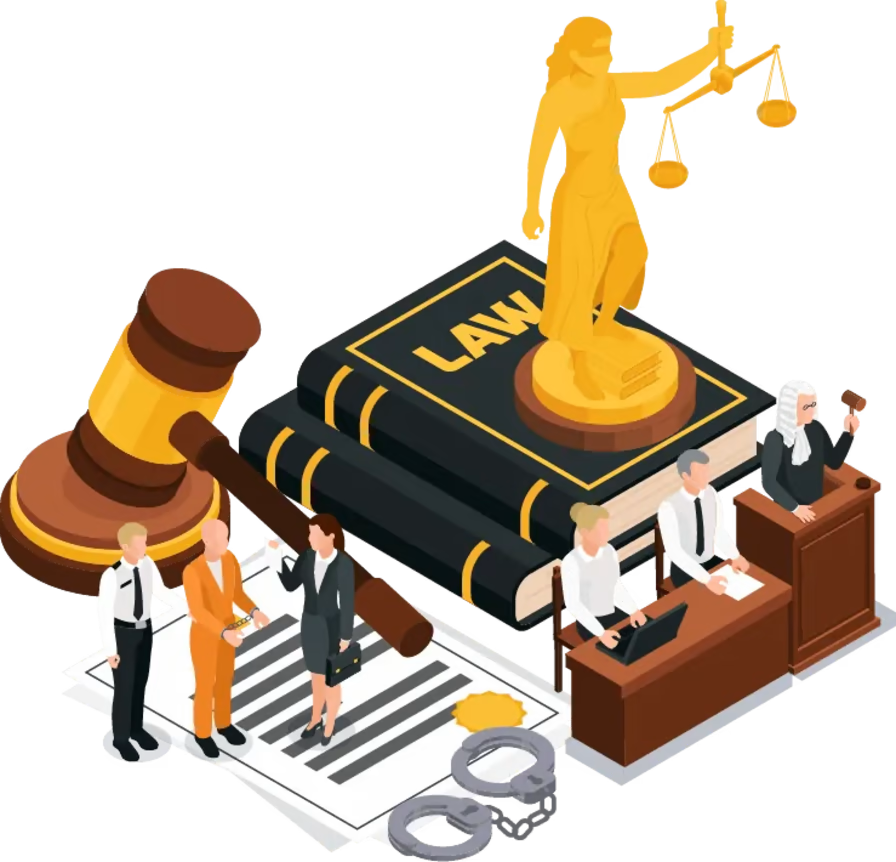
Certainly! Law is a multifaceted and dynamic field that governs societies, shaping interactions, resolving conflicts, and upholding justice. In this exploration, we’ll delve into the essence of law, its evolution, its various branches, its significance, and its impact on society.
Introduction to Law
Law is the system of rules, regulations, and principles that govern human behavior within a society. It provides a framework for resolving disputes, protecting rights, and maintaining order. At its core, law reflects the values, norms, and beliefs of a community, serving as a mechanism for social control and organization.
Evolution of Law
The history of law spans millennia, evolving alongside human civilization. Ancient societies, such as the Code of Hammurabi in Mesopotamia and the Twelve Tables in Rome, established rudimentary legal systems to regulate conduct and administer justice. Over time, legal systems became more complex and sophisticated, influenced by cultural, religious, and political factors.
The modern legal landscape is shaped by various historical developments, including the establishment of common law in England, the codification of laws in ancient civilizations like Babylon and Egypt, and the emergence of constitutionalism during the Enlightenment. These milestones laid the foundation for contemporary legal systems, which are characterized by a combination of statutory law, case law, and constitutional principles.
Branches of Law
Law encompasses numerous branches, each focusing on different aspects of human activity and societal regulation. Some key branches of law include:
- Criminal Law: Concerned with offenses against the state, criminal law defines prohibited conduct and prescribes penalties for violations. It encompasses crimes such as murder, theft, and assault, with prosecutions initiated by government authorities.
- Civil Law: Civil law governs disputes between individuals or entities, addressing issues such as contracts, property rights, and personal injury. Unlike criminal cases, civil cases typically involve compensation or remedies rather than punishment.
- Constitutional Law: Constitutional law pertains to the interpretation and application of a country’s constitution, which serves as the supreme legal authority. It establishes the structure of government, allocates powers among branches, and safeguards fundamental rights and freedoms.
- Administrative Law: Administrative law regulates the activities of government agencies and administrative bodies. It ensures that these entities act within their delegated authority, follow procedural fairness, and uphold the public interest.
- International Law: International law governs relations between sovereign states and international organizations. It encompasses treaties, conventions, and customary principles that guide diplomacy, trade, human rights, and armed conflict.
- Corporate Law: Corporate law deals with the formation, governance, and dissolution of corporations and other business entities. It addresses issues such as corporate governance, mergers and acquisitions, securities regulation, and corporate finance.
Significance of Law
The importance of law in society cannot be overstated. It serves several crucial functions:
- Order and Stability: Law provides a framework for maintaining order and stability within society by setting clear rules and standards of conduct. It helps prevent chaos and ensures predictability in interactions between individuals and institutions.
- Protection of Rights: Law safeguards individual rights and liberties by establishing legal protections against arbitrary actions by the government or other parties. It ensures equality before the law and provides avenues for redress in cases of injustice or infringement of rights.
- Dispute Resolution: Law offers mechanisms for resolving conflicts and disputes through peaceful means, such as negotiation, mediation, arbitration, and adjudication. It promotes fairness and justice by providing impartial forums for the resolution of legal disputes.
- Social Change: Law plays a crucial role in driving social change and progress by codifying evolving societal norms and values. Through legislative reforms, judicial decisions, and advocacy efforts, law can address injustices, promote equality, and advance human rights.
- Economic Development: Law creates a conducive environment for economic activity by establishing property rights, enforcing contracts, and regulating commercial transactions. It provides the legal framework necessary for investment, entrepreneurship, and market competition.
Challenges and Criticisms
Despite its vital role, the legal system faces various challenges and criticisms:
- Access to Justice: Many individuals lack access to legal representation and face barriers to accessing justice, particularly due to financial constraints or systemic inequalities. This can result in disparities in legal outcomes and undermine the legitimacy of the legal system.
- Complexity and Bureaucracy: Legal systems are often complex and bureaucratic, leading to inefficiencies, delays, and high costs. Simplifying legal procedures and enhancing legal literacy can improve access to justice and streamline the administration of law.
- Legal Reform and Adaptation: The law must continually evolve to address emerging issues and societal changes, such as technological advancements, globalization, and environmental challenges. Legal reform efforts face resistance from entrenched interests and bureaucratic inertia, hindering adaptation to evolving needs.
- Inequality and Discrimination: Despite legal protections, marginalized groups often face systemic discrimination and injustice within the legal system. Addressing biases and disparities in law enforcement, adjudication, and sentencing is essential for promoting equality before the law.
- Rule of Law and Authoritarianism: The rule of law is essential for democracy and governance, ensuring that laws apply equally to all individuals and that government power is constrained by legal principles. Threats to the rule of law, such as authoritarianism, corruption, and erosion of judicial independence, undermine democratic institutions and human rights.
Conclusion
Law is the cornerstone of society, providing a framework for governance, justice, and human interaction. Its evolution reflects the complexities of human civilization, shaping norms, values, and institutions. Despite its imperfections and challenges, law remains essential for promoting order, protecting rights, and advancing the common good. As societies continue to evolve, the ongoing pursuit of legal reform, access to justice, and the rule of law is vital for ensuring a fair and just society for all.
